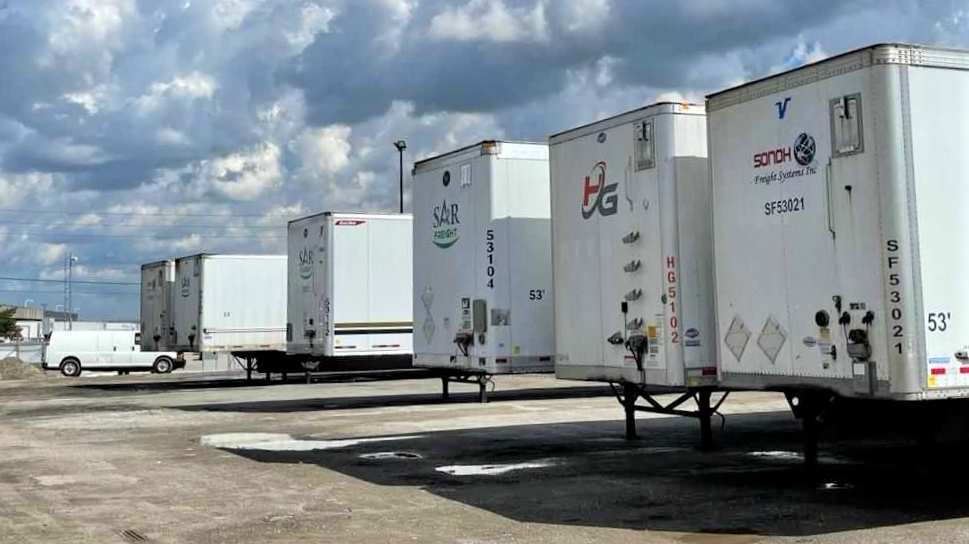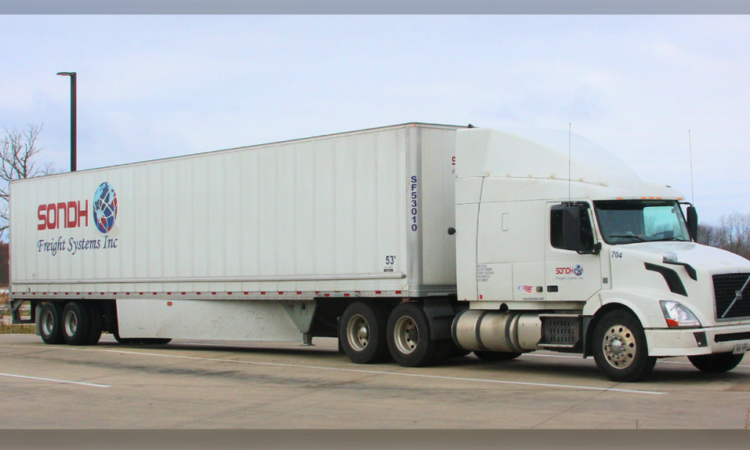A Brampton trucking company is under investigation by the federal government after a group of former long-haul drivers claimed it’s withholding at least $115,000 in unpaid wages from them.
Canada’s Labour Program confirmed to CTV News Toronto Friday that it’s investigating Brampton-based Sondh Freight Systems Inc. after receiving complaints made under Part III of the Canada Labour Code, which covers standard hours, wages, vacations, and holidays.
“[Sondh has] been telling us that we will get paid for months, but we never do,” a group of more than a dozen former employees penned in a collective letter late last year.
The former employees, composed entirely of immigrants to Canada, are being supported by Executive Director at Labour Community Services of Peel Navi Aujla and Toronto Paralegal Dionne Dussie. Since November 2022, 21 federal labour standards complaints seeking more than $115,000 in unpaid wages have been submitted by the pair to the federal government on behalf of the workers, seeking more than $115,000 in unpaid wages.
CTV News Toronto has made repeated attempts to reach Sondh Freight Inc. over the course of a week in January. The company acknowledged receipt but provided neither an interview nor a statement in response to the claims made by the workers.
At the time of publication, Aujla said four legally binding Orders to Pay have been issued to Sondh as a result of the claims she and Dussie have filed, totalling just over $28,000 – but the workers have yet to see any money back in their pockets and the company is seemingly still operating, they said.
“In the meantime, the company continues to hire new workers and repeat the same cycle,” the letter reads. “[They] should not be allowed to continue doing this to other workers. Are [21] claims not enough to prompt serious action?”
A job listing on the Canadian Government’s job bank for a truck driver position with Sondh Freight System was active on Monday afternoon.
The Labour Program’s complaint process can be lengthy, and Aujla said theirs has been extended further by Sondh’s initial lack of cooperation. As she fights for the group’s restitution, she’s also calling on the federal government to examine the barriers of the system, which she says can prioritize companies over workers.
Meanwhile, the workers affected – some of whom have now waited nearly a year since filing their complaint – continue to bear the brunt of the consequences of Sondh’s alleged actions.
‘NOT A SINGLE PENNY’
Vrushank Gheewala, one of the former workers, told CTV News Toronto in an interview over the phone from his Windsor, Ont., home that his time working for Sondh pushed him to the financial brink – so much so, he was forced to send his family back home to India.
“It’s kind of like emotional harassment,” Gheewala said. “They knew I had to send my family but still they didn’t do anything.”
To date, Sondh still owes Gheewala $13,000.
Gheewala said he began working at the trucking company in August 2021, and a month after that his paycheques became unreliable.
“Since September, we were not paid properly, not on time, we had to make several phone calls every week,” he recalled, adding that, at one point in time, he was calling the company 10 to 15 times a week seeking unpaid wages.
Eventually, he said he couldn’t hold out any longer – Gheewala quit Sondh and sought new employment. In the meantime, he said he was forced to send his family back home to India while he recuperated financially.
Gheewala now works elsewhere and has built back some stability, but he still hasn’t been paid what he’s owed.
“Now I’m able to get paid again, slowly, everything is coming back to normal, but still, Sondh owes me $13,000 and after I quit the company, they didn’t pay me anything,” he said.
“Not a single penny.”
‘MY PARENTS DEPEND ON ME’
Gaganpreet Walia is one of the four workers on whose behalf an Order to Pay has been issued to Sondh.
The company is now legally required to pay him a total of $14,777.50, according to the order, reviewed by CTV News Toronto.
“I got the payment order [issued] in September,” Walia said in an interview. “But still, there’s nothing in my accounts.”
Walia was hired at Sondh in 2019, he said. When COVID-19 hit, Walia said his payments started to become more and more delayed.
“At first, they were two weeks, three weeks late to pay, but we understood the situation because, at the time, it was bad for everyone,” he said. “Though it was so frustrating and so depressing because they owe me almost $15,000.”
Like Gheewala, Walia had a family to support.
“I’m an immigrant – I have expenses back home,” he explained. “Both my parents depend on me.”
To make up for the lost income, Walia said he’s gone into more than $10,000 in credit card debt.
“I’m paying interest on that,” he said. “I can’t express to you how hard that is.”
Like Gheewala, Walia said he has yet to be paid.
 A Sondh Freight Systems Inc. truck can be seen on the far right. (Handout by former employees)
A Sondh Freight Systems Inc. truck can be seen on the far right. (Handout by former employees)
LOOKING FORWARD
Aujla said the process of getting the group reimbursed is far from over. If the company fails to act on its Orders to Pay, the next step for the Labour Program is to issue the Orders to Pay to the director of the company, rather than to the company itself, she said.
If the former workers still aren’t paid after an order has been issued to the director, the complaint would move to federal court. In these cases, it can take weeks still from that point for payment to materialize.
From start to finish, it takes about six to nine months for a complaint to be processed, Aujla said.
The group says the system could be improved if workers were given more time to file a complaint to the Labour Program after an incident has occurred.
“It’s only six months, whereas [provincially], you have two years to file a claim,” Aujla explained. “A lot of workers are told by employers they’ll get their payments within that time frame, and then six months pass and it’s too late to file a claim.”
In the workers’ collective letter, the group called for the deadline to be extended to two years.
The group also says a lack of initial enforcement allows employers to continue cycles of not paying workers.
“Enforcement becomes such a difficult and long process that a payment order can almost mean nothing for a worker,” she said.
The bottom line, for Walia, is that the federal government needs to support its workers – and quickly.
“I don’t understand why we are paying taxes to the government if they are not helping us, or are this slow to help,” he said.
In the meantime, Aujla said she and Dussie will continue to fight for the group’s wages. This week, Sondh contacted Aujla and offered to meet with her and the workers, she says.
“But [they’ve] asked to meet before and it never led to anything,” she said.
“The Labour Program and the Canadian government need to step up and ensure that we get paid.”


